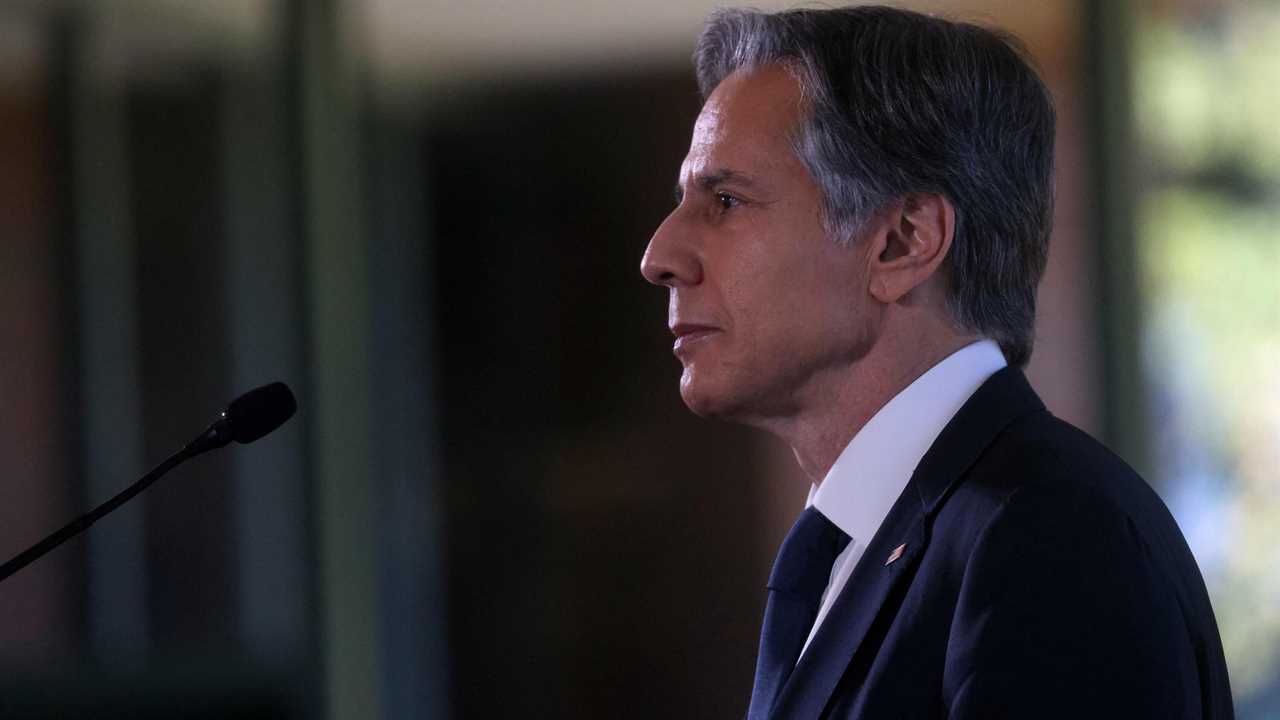
WASHINGTON — It was known at the State Department as the Benghazi hangover: strict security protocols to protect U.S. officials abroad from terrorism that, in practice, limited their interactions with people in the countries where they served.
Nine years after a U.S. ambassador and three other Americans were killed during a riot in Benghazi, Libya, the State Department is easing some of the restrictions, which had made routine diplomacy more difficult during the coronavirus pandemic and as crime surged.
The shift was announced on Wednesday as part of a retooling of the department — an exercise afforded to each secretary of state — that will also solicit more input on policy from employees, expand promotion and retention efforts and upgrade aging technology systems.
But the plan is not without risk. As recently as a year ago, the Trump administration was preparing to shutter the U.S. Embassy in Iraq over concerns that it would be targeted by Iranian-backed militias that almost overran the diplomatic compound’s walls in December 2019 to retaliate for a deadly drone strike against their fighters. The Trump administration also closed the U.S. consulate in Basra, in southern Iraq, in 2018 over fears that it was under similar threat. It withdrew diplomats from the U.S. Embassy in Caracas, Venezuela, as tensions with President Nicolás Maduro spiked in 2019.
And this August, the Biden administration evacuated the U.S. Embassy in Afghanistan after the Taliban seized control of Kabul, the capital, and international diplomats fled after 20 years of war.
“A world of zero risk is not a world in which American diplomacy can deliver,” Secretary of State Antony J. Blinken said in a speech on Wednesday at the Foreign Service Institute, where the U.S. diplomatic corps is trained, to announce the changes. “We have to accept risk and manage it smartly.”
Mr. Blinken said employees had complained that “it’s harder than it needs to be for them to do the kind of on-the-ground, person-to-person diplomacy that is so essential.”
He acknowledged that the security measures had put American diplomats at a disadvantage in some cases as the United States competes with China and Russia for global influence. “Other countries are increasing their diplomatic presence worldwide with far greater ease,” Mr. Blinken said.
China is already looking to fill the void in Afghanistan that was created by the rushed American departure in August. Foreign Minister Wang Yi of China met with senior Taliban officials on Wednesday and urged the United States to step up its diplomacy to avoid a humanitarian disaster in Afghanistan.
The evacuation from Kabul also led to a severe drop in morale among thousands of American diplomats over the collapse of all they had worked toward, but also over leaving behind thousands of Afghans who had relied on the United States to deliver stability.
Understand the Taliban Takeover in Afghanistan
Who are the Taliban? The Taliban arose in 1994 amid the turmoil that came after the withdrawal of Soviet forces from Afghanistan in 1989. They used brutal public punishments, including floggings, amputations and mass executions, to enforce their rules. Here’s more on their origin story and their record as rulers.
Internal reviews of the evacuation — when more than 120,000 diplomats, foreign officials and Afghans flew out of the country over two weeks in August — are continuing at the State Department.
“We will not let this opportunity to learn and do better pass us by,” Mr. Blinken said.
It remains unclear when that process will be completed. Congress is eager for answers about the hasty withdrawal, which the Pentagon said left behind more Americans citizens than the State Department has acknowledged.
“How can we possibly say in the end that the withdrawal has left us better equipped diplomatically to face other challenges?” Senator Todd Young, Republican of Indiana, asked Brian P. McKeon, the department’s deputy secretary of state for management, at a hearing on Capitol Hill shortly before Mr. Blinken’s speech.
Mr. McKeon described a “strong sense of mission” among diplomats who were dispatched to Kabul to help scores of Afghans who were trying to leave on military evacuation flights before the U.S. withdrawal on Aug. 30. But he also noted the emotional toll of the experience.
“There’s an array of emotions about what was invested and in what was lost,” Mr. McKeon said.
Michael Crowley contributed reporting.
Did you miss our previous article...
https://trendinginthenews.com/usa-politics/hunting-for-money-democrats-rush-to-rewrite-tax-code






